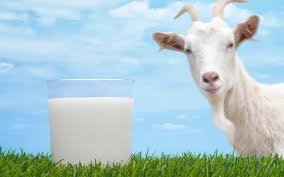Researchers with the Dutch National Institute for Public Health and the Environment (RIVM) and the Dutch Food and Consumer Product Safety Authority (NVWA) shows that two types of bacteria that can cause diarrhea in humans ( STEC and Campylobacter) are common in dairy goat farms and dairy sheep farms, according to a RIVM press release (computer translated).
 According to Outbreak News Today, in the animal study, 181 dairy goat farms and 24 dairy sheep farms were examined. STEC (Shiga-toxin-producing E. coli) and Campylobacter was found on most. STEC appeared on virtually all the farms studied. Campylobacter has been demonstrated in one out of three goat farms (33 percent) and almost all sheep farms (96 percent). These bacteria have found much less among cattle farmers and family members.
According to Outbreak News Today, in the animal study, 181 dairy goat farms and 24 dairy sheep farms were examined. STEC (Shiga-toxin-producing E. coli) and Campylobacter was found on most. STEC appeared on virtually all the farms studied. Campylobacter has been demonstrated in one out of three goat farms (33 percent) and almost all sheep farms (96 percent). These bacteria have found much less among cattle farmers and family members.
Listeria was less common, at about 9 percent of the goat and about 17 percent of the sheep farms. The bacteria was not found in the people studied. People run the risk of becoming infected with the listeria bacteria by eating raw milk soft cheese. The study also looked at Salmonella and ESBL-producing bacteria. These were not very common on the farms surveyed.
The results show that pasteurization of milk and hygiene after visiting a dairy goat farm or dairy sheep farm is important to prevent disease.
The bacteria found are in the intestines of the animals and thus enter the manure. A small amount of manure can contaminate raw milk or raw milk cheese. Contamination can be prevented by drinking only pasteurized milk or using it in other foods. In addition, people at a farm can become infected if they have contact with the animals or their environment. Visitors can reduce the risk of illness by washing their hands after contact with the animals or their environment.
In unrelated but related news, Brandon Macz of the Monroe Monitor reports that St. John Creamery in Monroe, Washington, announced on Thursday it is voluntarily recalling raw goat milk that may be contaminated with Escherichia coli (E.coli) bacteria.
A June 14 news release states the recall was initiated after “the presence of toxin-producing E.coli in retail raw goal milk dated 6/17” was discovered during routine sampling by the Washington State Department of Agriculture.
Included in the recall are half-gallon and one-pint containers of raw goat milk marked best by June 17-21.
